- 15 mass casualty incidents from regime airstrikes reported in Arakan State since 2023
- Kyaukphyu IDPs forced to flee again amid junta airstrikes and artillery attacks
- New Diplomatic Movements Between Bangladesh’s New Government and the Arakan Public Administration
- Junta claims over 24 million ballots cast in 2025 poll, cites strong youth turnout
- ULA expands HIV prevention, healthcare services for sex workers in AA-held areas
Between Harmony and Hostility - The Arakan Army's Engagement with Muslim Communities Amid Border Turmoil
The current situation highlights a paradox. The ULA/AA is advancing a political project that seeks to redefine Arakan as a multi-ethnic, inclusive homeland where Muslims, Buddhists, Hindus, and other communities share equal rights. Yet this project is being tested by border militarisation, insurgent violence, and cross-border political agendas.
25 Sep 2025
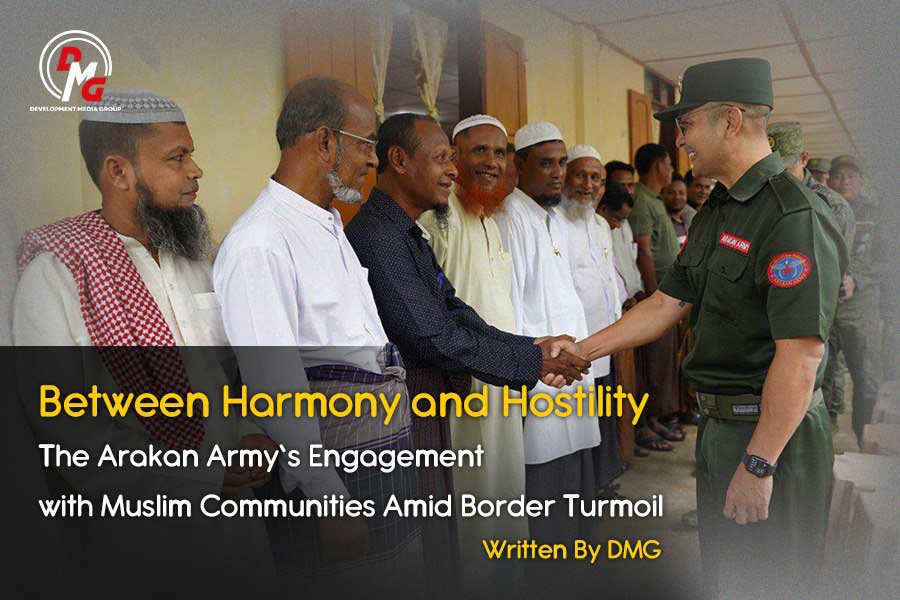
DMG Analysis | September 2025
Arakan State is currently at a crossroads. On the one hand, the United League of Arakan/Arakan Army (ULA/AA) has made significant political and social overtures toward building coexistence between Arakanese and Muslim communities, including gestures such as reopening mosques, integrating Muslim teachers into the Arakkha National Education Department, and engaging with Muslim leaders on issues of social harmony.On the other hand, the escalation of violence between the AA and Muslim armed groups such as ARSA (Arakan Rohingya Salvation Army) and RSO (Rohingya Solidarity Army) on the northern Arakan-Bangladesh border has raised urgent security concerns and complicated prospects for peace, stability, and refugee repatriation.
A New Era of Inclusion?
For decades, Muslims in Arakan were systematically excluded under Myanmar's military governments. Opportunities for education, administrative participation, and religious freedom were restricted, leaving deep scars of marginalisation. Against this backdrop, the ULA/AA's current approach marks a break with past practices.
The reopening of Maungdaw's historical Jamae Mosque in September, after more than a decade of closure, was a highly symbolic moment. Attended by hundreds of Muslims as well as representatives of other ethnic and religious communities, the event underscored the ULA/AA's message of inclusivity. In parallel, over 170 Muslim teachers have been appointed in Buthidaung and Maungdaw townships under the Arakkha National Education Department, following training supported by the ULA/AA.
Muslim leaders interviewed by DMG repeatedly emphasised that they are experiencing freedoms and opportunities not seen under previous regimes. One local advisor put it bluntly: "We have gained opportunities that we never had when the military regime was in power."
This gradual integration of Muslims into governance and social life under ULA/AA control is intended to strengthen trust and lay a foundation for sustainable coexistence. The AA's Commander-in-Chief, Maj-Gen Twan Mrat Naing, has himself spoken about the importance of ensuring freedom of religion and building harmony as part of Arakan's future.
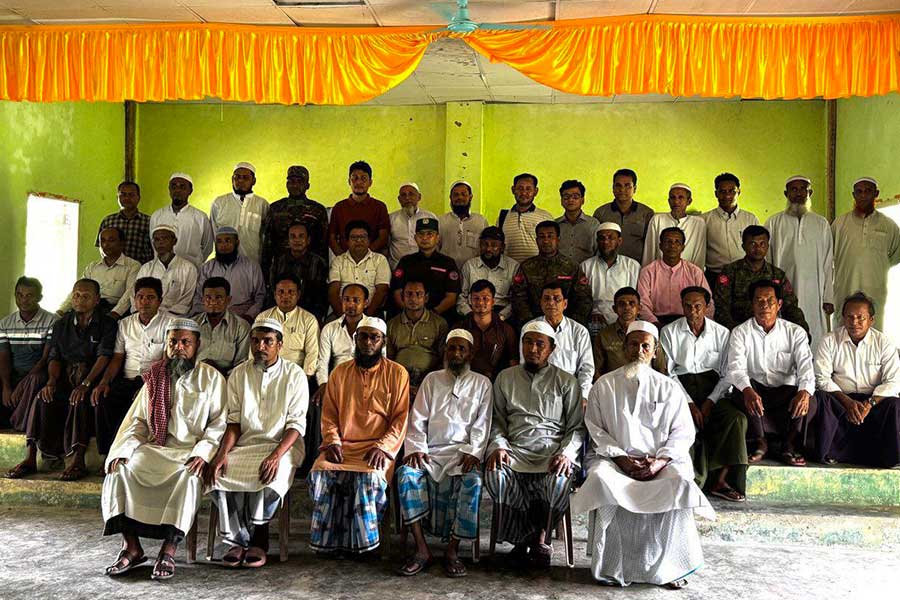
The Persistent Threat of Armed Groups
Yet this emerging framework of coexistence is being undermined by the violent activities of Muslim armed groups based along the Arakan-Bangladesh border. ARSA in particular has escalated attacks against the AA since mid-September, seizing camps, ambushing patrols, and disrupting trade routes.
These clashes not only displace civilians and destabilise the region but also threaten to reignite old suspicions between communities. Locals point out that ARSA often uses Muslim villages in both Bangladesh and northern Maungdaw as operational cover, blurring the line between armed activity and civilian life.
Muslim leaders inside Arakan have strongly condemned ARSA's actions, describing them as "acts of betrayal" against both Muslims and Arakanese. Interviewees stressed that ARSA has historically harmed Muslims through forced recruitment, extortion, and killings, driving hundreds of thousands into exile. The perception that ARSA is now acting in ways that benefit Myanmar's junta only deepens hostility toward the group.
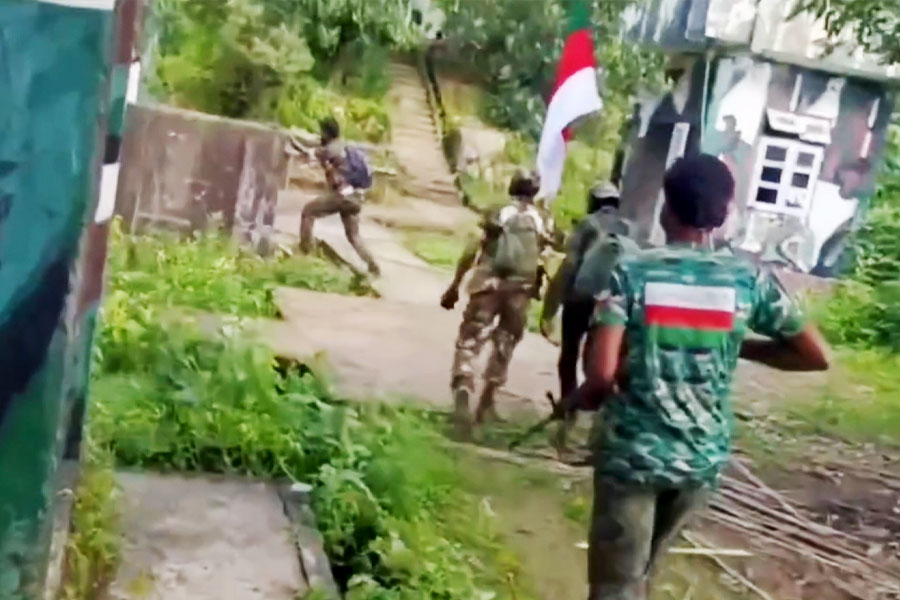
At the same time, accusations from exiled Muslim activists against the ULA/AA - including allegations of rights abuses - have further complicated relations. Local Muslim leaders say these narratives are disconnected from realities on the ground and risk sabotaging fragile gains in social harmony.
Refugee Repatriation: A Distant Goal
The persistence of border clashes also casts a long shadow over efforts to repatriate more than 1.1 million Muslim refugees currently in Bangladesh. The Bangladeshi government has been pushing for returns amid resource strains and camp insecurity. However, instability inside Arakan, combined with the intensification of ARSA-AA fighting, makes large-scale repatriation untenable in the near future.
Even Maj-Gen Twan Mrat Naing has cautioned that "there is no security in Arakan State because of the war" and questioned whether pushing refugees back into a conflict zone can be justified on humanitarian grounds. Political analysts note that without durable stability and trust-building inside Arakan, any repatriation effort risks collapse.
Meanwhile, attacks by Muslim armed groups provide justification for delays and heighten Arakanese fears of renewed violence. Local Muslim elders warn that exiled activists stirring hostility only worsen conditions for their compatriots trapped in refugee camps.
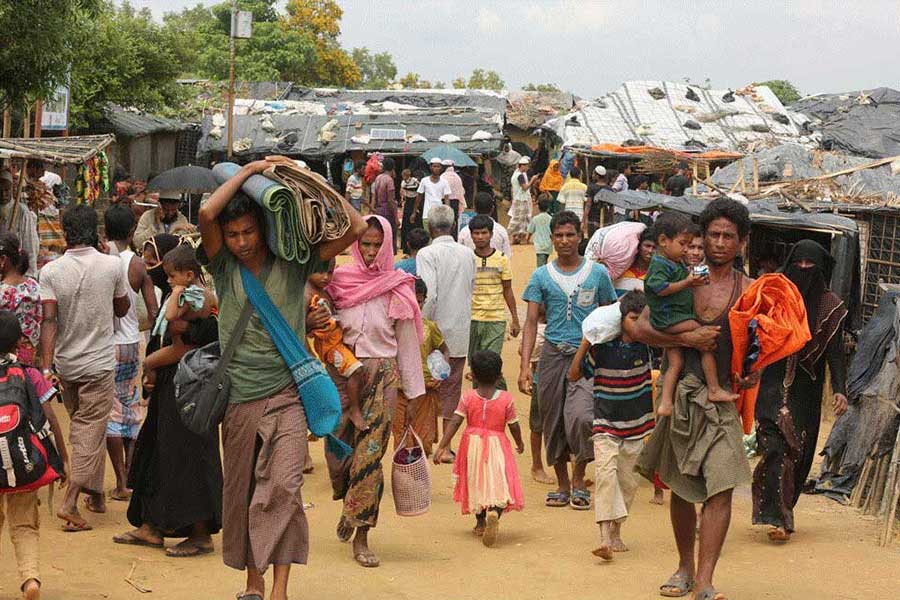
Balancing Harmony and Security
The current situation highlights a paradox. The ULA/AA is advancing a political project that seeks to redefine Arakan as a multi-ethnic, inclusive homeland where Muslims, Buddhists, Hindus, and other communities share equal rights. Yet this project is being tested by border militarisation, insurgent violence, and cross-border political agendas.
Muslims inside Arakan appear largely supportive of the ULA/AA's initiatives, seeing them as unprecedented opportunities to live and participate as equals. But if violence by ARSA, RSO, and other armed groups continues, the AA risks being forced into a security-first approach that could overshadow its inclusive political vision.
Ultimately, the challenge for the ULA/AA lies in maintaining a delicate balance: advancing social harmony and inclusion while decisively countering armed groups that threaten peace. Success will depend not only on military strength but also on the continued trust of both Arakanese and Muslim civilians.
If coexistence prevails, Arakan could emerge as a model of locally driven conflict transformation in Myanmar's wider civil war. If violence dominates, however, hopes for reconciliation and refugee return may fade further into the distance.
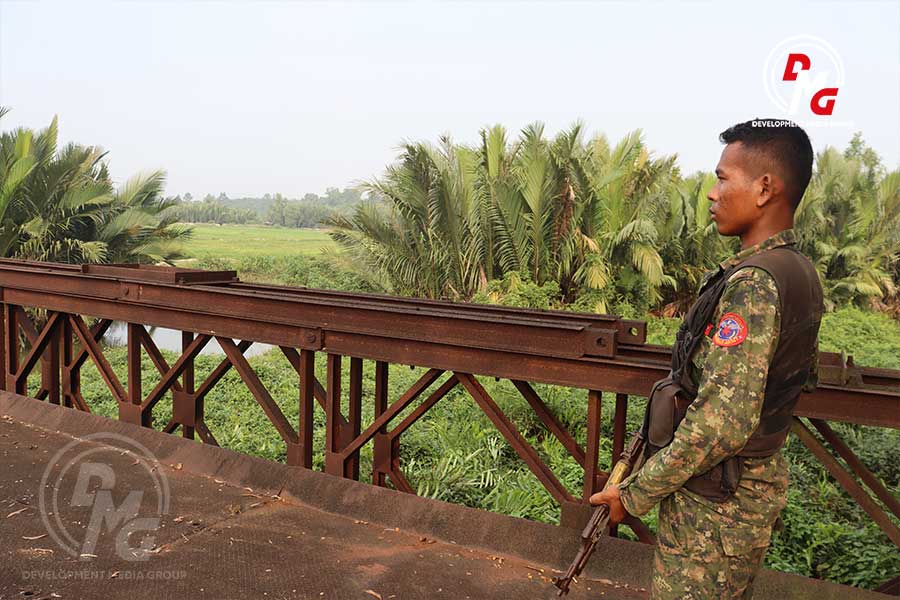








.jpg)











